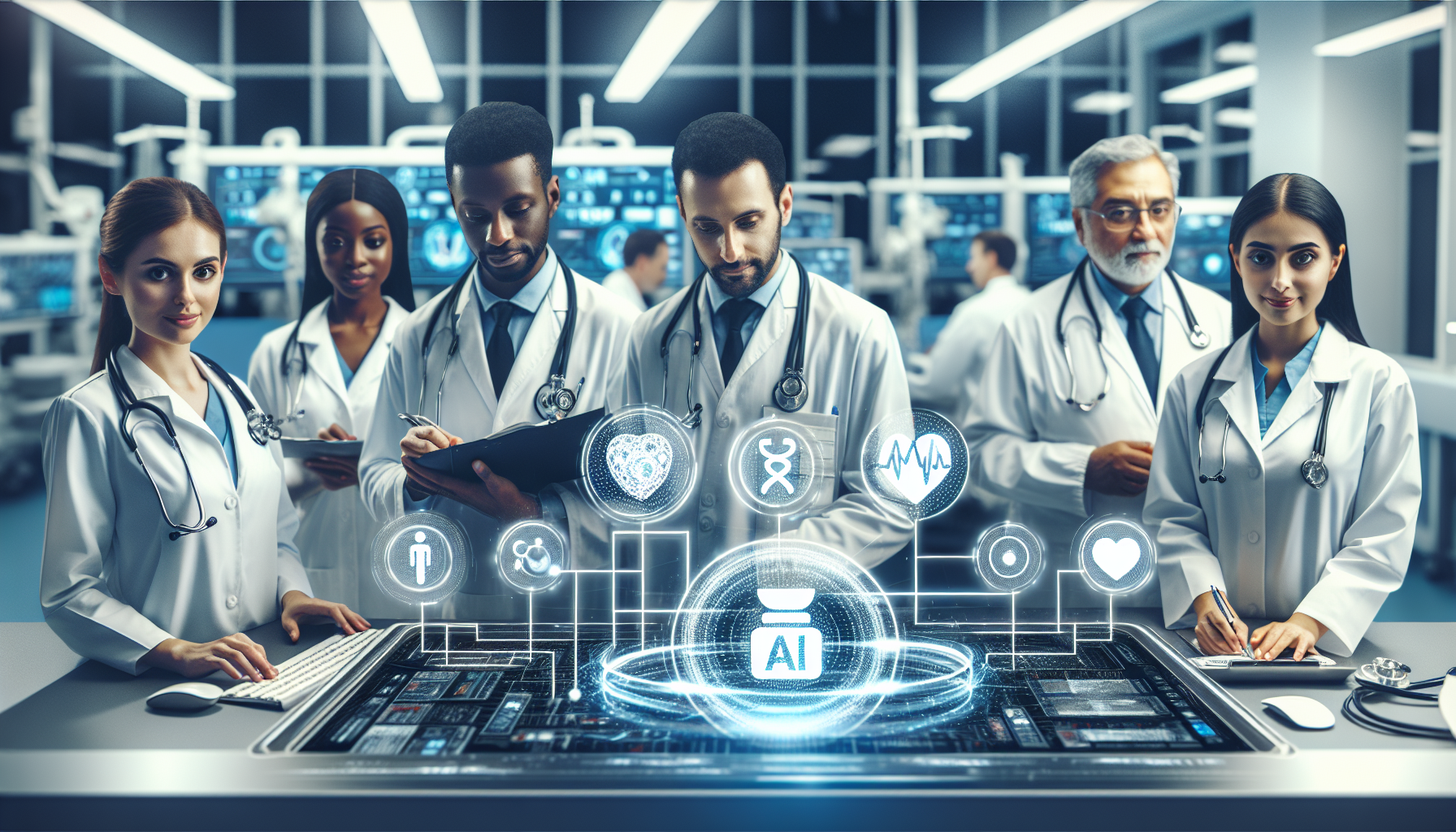Innovations in Healthcare: AI Supporting Medical Professionals and Administrative Tasks
Understanding AI in Healthcare
Artificial Intelligence (AI) refers to the simulation of human intelligence in machines programmed to think and learn like humans. In the healthcare sector, AI’s integration has revolutionized patient care, diagnostics, and administrative workflows. These innovations are enabling healthcare professionals to deliver more accurate and efficient services, ultimately enhancing overall patient outcomes.
AI in Diagnostics
One of the most significant applications of AI in healthcare is in diagnostics. Machine learning algorithms can analyze vast datasets, including medical imagery, lab results, and patient histories, to assist in identifying diseases with remarkable accuracy.
Imaging Analysis
AI-powered tools, such as Google’s DeepMind, have demonstrated proficiency in diagnosing conditions like diabetic retinopathy and age-related macular degeneration by analyzing retinal scans with higher accuracy than human specialists. These tools utilize advanced convolutional neural networks (CNNs) to identify patterns and markers in images that may not be readily visible to the human eye.
Predictive Analytics
Predictive analytics is another area where AI proves beneficial. Machine learning models can assess a patient’s risk of developing certain conditions based on their data. For instance, IBM Watson can analyze patient records against vast repositories of medical literature to predict outcomes and suggest personalized treatment options, allowing for proactive healthcare.
Enhancing Patient Care
AI facilitates improved patient care through personalized treatments and streamlined communication.
Personalized Treatment Plans
By analyzing genetic information and lifestyle factors, AI can support the formulation of personalized treatment plans. For example, AI algorithms can sift through genomic data to identify cancer mutations and recommend targeted therapies that yield better results than standard treatments.
Virtual Health Assistants
AI-driven virtual health assistants, such as chatbots, assist patients in navigating their healthcare journey. These applications can answer queries, schedule appointments, and even provide medication reminders. By managing routine tasks, these virtual assistants enable human healthcare workers to focus on complex patient interactions.
AI in Administrative Tasks
Beyond clinical applications, AI significantly enhances administrative efficiency in healthcare settings.
Streamlining Administrative Processes
Administrative burdens, such as scheduling, billing, and record-keeping, can overwhelm healthcare staff. AI tools can automate these processes, reducing human error and improving overall efficiency. For instance, AI scheduling systems can optimize appointment bookings by analyzing patient preferences and availability, minimizing no-shows and maximizing resource allocation.
Natural Language Processing (NLP)
Natural Language Processing (NLP) is an AI branch that focuses on the interaction between computers and human language. In healthcare, NLP tools can transcribe and analyze clinical notes, extracting essential information from unstructured data. This capability not only saves time for medical professionals but also ensures accuracy in patient documentation.
Data Management and Security
With technology integration, managing large amounts of data securely is crucial in healthcare.
Enhanced Data Security
AI can improve data security through anomaly detection algorithms. By continuously monitoring for unusual patterns in data access and usage, AI can identify potential breaches in security, safeguarding sensitive patient information.
Accurate Billing and Coding
AI systems can also enhance billing accuracy by automating coding processes. By analyzing treatment data and medical records, AI tools can ensure correct coding, thus reducing claim denials and improving revenue cycles in healthcare organizations.
Training and Education
Another vital area where AI is fostering innovation is in the training and education of healthcare professionals.
Simulation-Based Learning
AI can create realistic simulation environments for training medical students and professionals. Virtual Reality (VR) and Augmented Reality (AR) applications powered by AI enable healthcare providers to practice skills in a safe and controlled environment. This immersive learning experience enhances the educational process, ensuring practitioners are better prepared for real-world challenges.
Continuous Learning
AI also plays a role in continuous education by providing up-to-date information on medical research. Machine learning algorithms can summarize recent studies and clinical trials, tailoring recommendations based on specific areas of interest, thus helping professionals stay informed on evolving medical practices and guidelines.
Regulatory Compliance
Regulatory frameworks in healthcare are strict, and maintaining compliance is essential yet challenging.
Streamlining Compliance Processes
AI tools can assist in monitoring compliance with regulations such as HIPAA (Health Insurance Portability and Accountability Act). By analyzing data-sharing practices and audit trails, AI can flag potential compliance issues before they become problematic. This proactive monitoring ultimately reduces legal and financial risks for healthcare organizations.
Patient Engagement and Satisfaction
AI enhances not only operational efficiency but also patient engagement and satisfaction.
Enhanced Communication
AI-enabled platforms can facilitate better communication channels between patients and providers. By employing sentiment analysis and feedback loops, healthcare organizations can understand patient concerns and satisfaction levels, enabling them to improve services continuously.
Tailored Care Experiences
AI can also help create customized care experiences by analyzing patient preferences and behaviors. By tailoring communications and care approaches according to individual needs, healthcare providers can foster stronger patient relationships and improve health outcomes.
Future Directions and Challenges
As AI continues to advance in healthcare, several potential challenges must be addressed.
Integration with Existing Systems
Many healthcare institutions still rely on legacy systems, posing challenges for seamless AI integration. Ensuring compatibility while maximizing the effectiveness of AI innovations is crucial for smooth operations.
Ethical Considerations
The ethical implications of AI use in healthcare must also be carefully evaluated. Issues such as data privacy, algorithmic bias, and the role of human oversight in AI decision-making processes need ongoing scrutiny to ensure that innovations do not compromise patient trust or care quality.
Workforce Adaptation
Integrating AI into healthcare settings necessitates workforce adaptation. Professionals will need training in new technologies to leverage their full potential. Ensuring ongoing education and support will be vital as systems evolve.
Utilizing AI in healthcare has the potential to transform every aspect of the industry, from diagnostics to administrative efficiency. By harnessing the power of AI, healthcare professionals can not only improve clinical outcomes but also enhance operational systems, thus providing better and more accessible care to patients.


